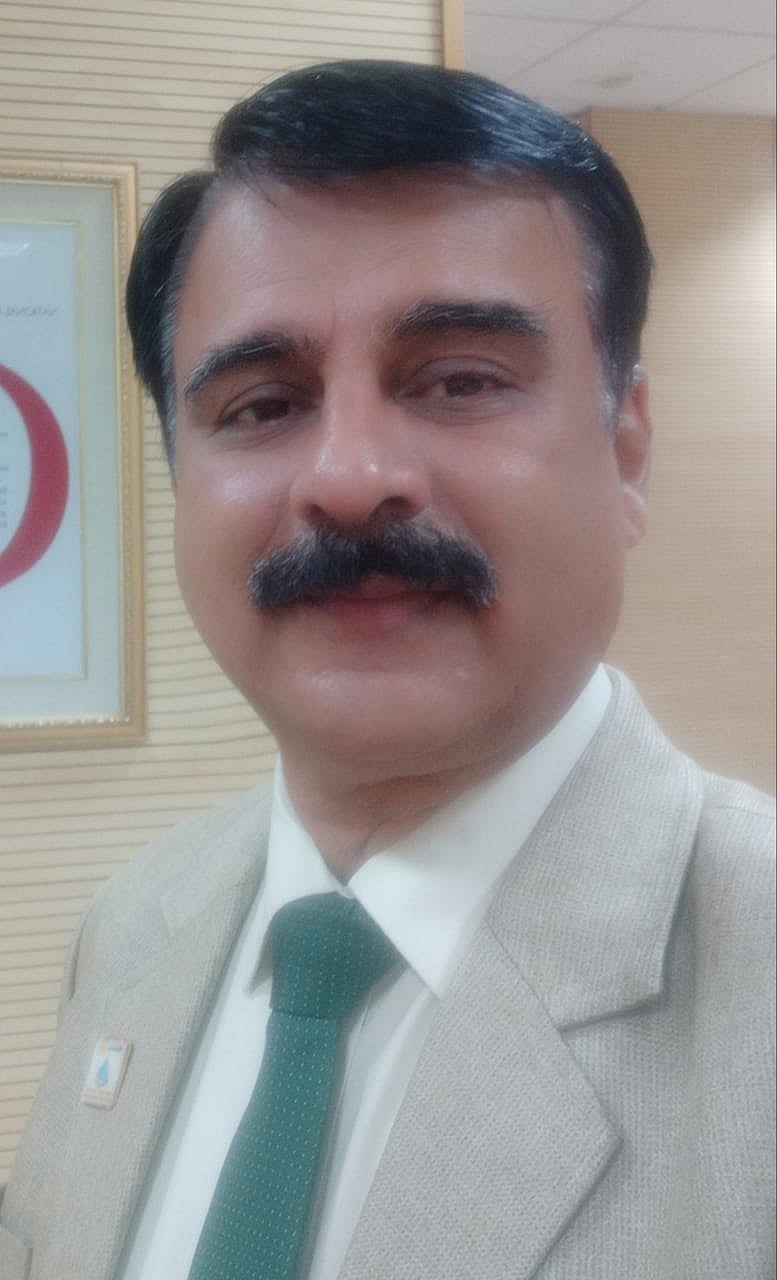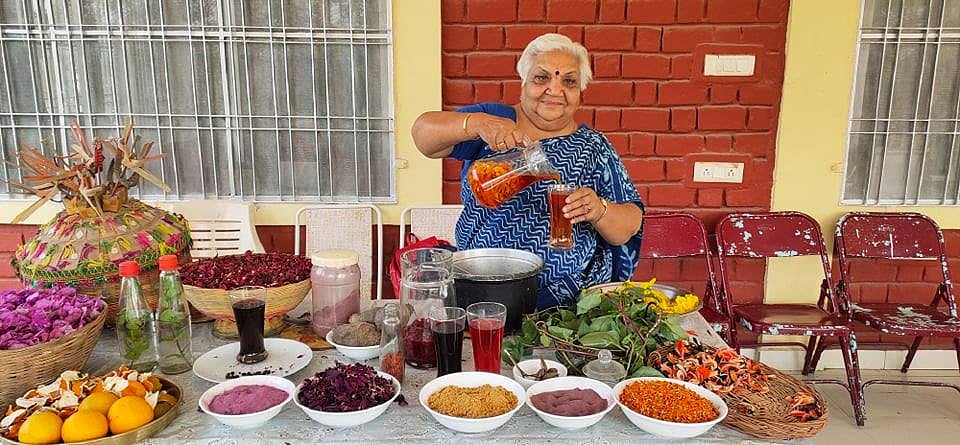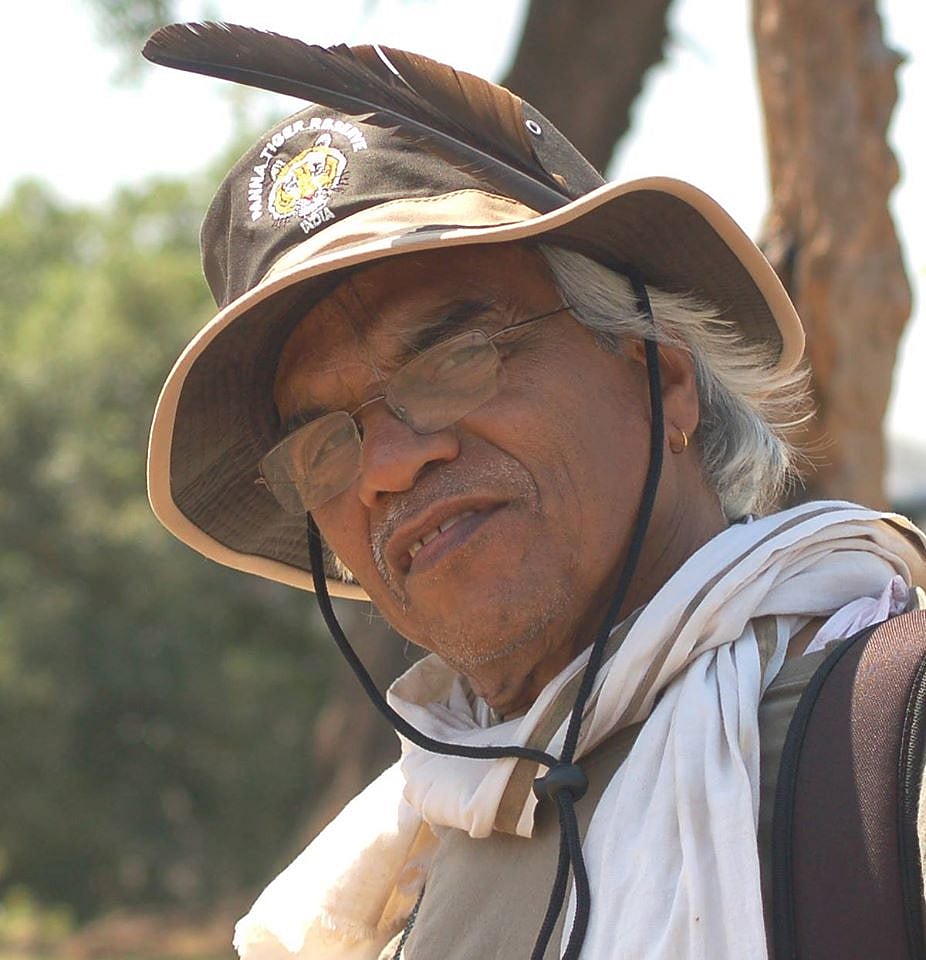Indore: The entire world went into pause mode under lockdown to fight the spread of COVID-19 or coronavirus. This lockdown period has given nature time to heal itself and restore Earth by controlling air, water and sound pollution temporarily.
It is not surprising to see that wildlife is reclaiming its habitat and finally getting their share of the Earth. However, the question is what happens when the lockdown is lifted? We cannot really shut-down industries and transport systems forever… but it is possible to act responsibly and maybe celebrate Earth Holidays every year.
Come on, think again! Is it not nice to spend time gardening, singing, dancing, playing board games, watching birds, meditating or just relaxing without any electronics and diversions for a while?
For an artist, is it not essential to consider acting upon what he or she paints? Can we not re-think how and when we use our resources?
With pioneers of nature, who are doing their bit and experts, we have some essential suggestions that can save our survival on Earth.

Painting prepared by using natural colours by nature lover Safwan Husain |
Paint a Nature-friendly Picture
“Art is an essential part of our life that helps us experience life beyond materialistic things. We often prepare artworks dedicated to Mother Nature. These artworks despite good intentions actually do more harm to Earth than we realise.
Today, we are all struggling with air, water and land pollution. To get the right glow and form long-lasting paintings, most people use acrylic colours.
Acrylic paint made from a synthetic resin binder called acrylic polymer emulsion (basically liquid plastic) which is a chemical produced by a chemical process, the thickeners, defoamers, preservatives and other additives are chemicals and even the synthetic pigments used to make the colours are chemicals.
Though it is water-based, it is not water soluble. While painting all the colour that we discard has disastrous effects for aquatic environment, meaning that pouring acrylic waste water down the drain is damaging waterways.
One of the basics is how we discard them and much better if we can explore the nature dyes and colours. I prepared a painting by deriving colour from a rock in a remote area near Bengaluru. I intend to work on such colours more often. Our actions speak louder than paintings itself.”
- Safwan Husain, Artist

Geologist Sudhindra Mohan Sharma |
Earth Holiday Week every year
“In the last month, Earth has clearly proven it again that we are incapable of damaging it. What we are truly damaging by our irresponsible actions is our survival on earth.
Earth has been around for over 43,000 billion years and without us (humans) for about 13 million years. Clearly, we are not essential for Earth’s survival.
Earth is capable of healing itself even in a week to two weeks. We have to bring changes in our actions to extend the survival of humankind on earth. So, that should be our first lesson.
It has been 150 years since industrial revolution. We have been exploiting natural resources, throwing containments in water, polluting the air without a break and so on. Earth took a week in healing.
Another lesson that we have to learn from the lockdown and the outspread of coronavirus is that we don’t have a chance if earth plays against us. Currently, earth is favouring us and supporting our survival.
Now that it is clear that we need to act responsibly for ourselves, where and how we start is easier. Following the lockdown, we must celebrate an annual ‘Earth Holiday’ for a week or two weeks. During this time, we cannot venture out to Himalayas and spoil the ecosystem there.
We all must refrain entirely from polluting the earth in every possible way. Even staying at home means avoiding the use of air conditioning and misuse of resources. For Madhya Pradesh, such a week can easily be planned during winters.
Government and world organisations can escalate this drive and ensure Earth Holiday Week every year.”
- Sudhindra Mohan Sharma, Nodal Officer
National Drinking Water Security Pilot Projects at Ministry Of Drinking Water and Sanitation, Govt of India, New Delhi

Padma Shri Janak McGilligan Palta Live in sync with Earth |
“The entire ecosystem and earth’s processes are much larger than our existence. We cannot afford to harm the environment as it affects our lives and future survival.
Lockdown has truly been a blessing in disguise. If we do not learn to live in sync with earth’s processes, then our existence is bound to come to an end sooner than we realise. We are already suffering from several chest and lung disorders as we continue to burn fossil fuels and pollute the air.
We need to keep our air clean, so that we can breathe and survive. Similarly, all our actions have consequences. In order to start living in sync with the environment, we must first begin with learning to make ourselves and our life self-sustained.
We need to switch to renewable resources of energy. Solar power is an essential source and a blessing for country like India. However, most of us are not utilising it and instead still digging out fossil fuels, then burning them for creating energy.
We have created a model of sustainable development in Sanwadiya, which people can adopt easily. Another essential change that is necessary for our survival is removing use of chemical from our food and lives in every possible. Nature has given us plenty.”
Padma Shri Janak McGilligan Palta

Padma Shri Bhalu Mondhe |
Stop honking for our future!
“For the first time, birds have got peace. They are able to move properly. This is much needed. I pray that we learn the lesson to keep pollution and noise at bay even post lockdown.
Wild birds are still important sources of raw materials. Regulating services include activities such as pollinating plants, scavenging carcasses, controlling populations of pest species, and dispersing seeds. Pest control. Birds reduce the destructive impacts of various pest species.
The least we can do when lockdown lifts is put out water and feed for birds. Stop honking! Furthermore, let the birds live around us by controlling air, water and land pollution. Wetlands are essential for ecosystems and we need to preserve them.”
- Padma Shri Bhalu Mondhe










